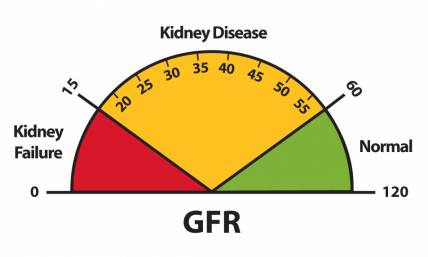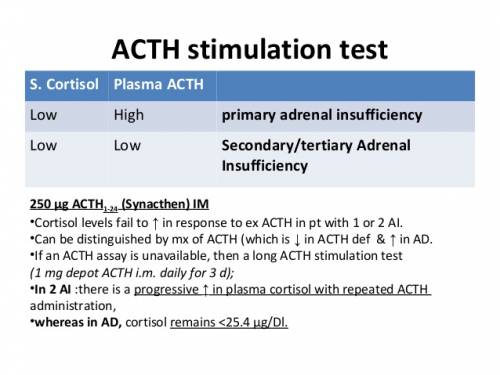The measurement of Glomerular Filtration Rate (GFR) determines the effectiveness of kidney function by measuring the volume of blood that flows through the glomeruli each minute. GFR is a crucial indicator of kidney health and plays an important role in identifying and managing various kidney disorders.
It serves as a crucial tool for healthcare providers to track kidney function and identify initial indications of kidney disease. Consistently keeping track of GFR enables proactive measures and treatments to uphold the best possible kidney health.
Definition and explanation of GFR
Glomerular Filtration Rate (GFR) is the evaluation of the kidneys’ efficiency in removing waste and extra fluid from the bloodstream. It determines the quantity of blood that flows through the glomeruli, small filtering units in the kidneys, every minute. GFR is a significant marker of kidney well-being and aids in identifying initial indications of kidney disease.
How GFR is measured
GFR is usually measured using a blood test called a creatinine clearance test, which involves analyzing the level of waste product (creatinine) in the blood and collecting a urine sample over 24 hours. The results are then used to calculate the GFR, providing valuable information about kidney function.
Estimated Glomerular Filtration Rate
The following table summarizes estimated GFR and the stages of kidney damage:
| KIDNEY DAMAGE STAGE | DESCRIPTION | ESTIMATED GFR (ML/MIN/1.73M2) | OTHER FINDINGS |
|---|---|---|---|
| 1 | Normal or minimal kidney damage with normal GFR | 90+ | Protein or albumin in urine may be high, cells or casts rarely seen in urine (see Urinalysis) |
| 2 | Mild decrease in GFR | 60-89 | Protein or albumin in urine may be high, cells or casts rarely seen in urine |
| 3 | Moderate decrease in GFR | 30-59 | |
| 4 | Severe decrease in GFR | 15-29 | |
| 5 | Kidney failure | <15 |
Normal Range of Glomerular Filtration Rate
The normal range of Glomerular Filtration Rate (GFR) for adults is typically between 90-120 mL/min/1.73m². GFR levels below 60 mL/min/1.73m² are considered abnormal and may indicate impaired kidney function. It is important to monitor GFR to assess kidney health and detect any potential issues early on.
Healthy GFR levels for adults
The healthy glomerular filtration rate (GFR) range for adults is typically between 90 to 120 milliliters per minute. This suggests that the kidneys are working effectively and efficiently in removing waste from the bloodstream. It is crucial to keep the GFR within this particular range to guarantee excellent kidney function and overall health.
Factors that can affect GFR
A variety of factors can influence the Glomerular Filtration Rate (GFR). These factors include age, gender, and ethnicity, with GFR typically decreasing as people age and being lower in women. GFR can also be affected by medical conditions such as diabetes and hypertension, as well as certain medications. Furthermore, lifestyle choices like smoking and an unhealthy diet can contribute to a decrease in GFR. It is crucial to take these factors into account when monitoring and ensuring healthy GFR levels.
Implications of Low GFR
Low GFR can indicate impaired kidney function and is associated with various health conditions such as chronic kidney disease, diabetes, and hypertension. A decrease in GFR can lead to fluid retention, electrolyte imbalances, and the accumulation of waste products in the body. It is important to monitor and address low GFR to prevent further kidney damage and complications.
Health conditions associated with low GFR
Health conditions linked to a low GFR consist of chronic kidney disease, diabetes, hypertension, glomerulonephritis, and polycystic kidney disease. These illnesses can diminish kidney function, leading to a decrease in GFR. It is crucial to regularly check GFR levels in order to identify and effectively handle these health conditions.
Consequences of impaired kidney function
Consequences of impaired kidney function can have a profound impact on one’s overall health. Kidneys play a crucial role in filtering waste products from the blood and maintaining fluid balance. When kidney function is compromised, it can lead to the buildup of toxins and electrolyte imbalances, resulting in symptoms such as fatigue, swelling, high blood pressure, and anemia. In severe cases, it can progress to chronic kidney disease or end-stage renal disease, requiring dialysis or kidney transplant for survival.
Implications of High GFR
Health conditions linked to an elevated GFR consist of hyperfiltration syndrome and specific forms of kidney ailments like glomerulonephritis. Additionally, excessive fluid consumption, certain drugs, and metabolic conditions like diabetes can also lead to a high GFR. It is crucial to keep track of and manage elevated GFR levels in order to mitigate any potential dangers and difficulties.
Health conditions associated with high GFR
Medical issues connected to high glomerular filtration rate (GFR) are frequently linked to heightened blood flow towards the kidneys, like hypertension or specific drugs. Furthermore, health problems like diabetes and hyperthyroidism can also result in an increased GFR. It is crucial to carefully observe these conditions and effectively control them to uphold kidney health.
Potential risks and complications
Increased glomerular filtration rate (GFR) can pose potential dangers and complexities, which include a higher likelihood of developing kidney stones, imbalances in electrolytes, and harm to the kidneys. Moreover, a high GFR can result in an excessive elimination of fluids and waste from the body, burdening the kidneys and potentially leading to dehydration or deficiencies in essential nutrients. It is essential to regularly monitor and effectively handle the situation to avoid these risks.
Factors Affecting Glomerular Filtration Rate
There are various factors that can affect the glomerular filtration rate (GFR). GFR levels can be influenced by age, gender, and ethnicity. Medical conditions like diabetes and hypertension, as well as certain medications, can also have an impact on GFR. Additionally, factors such as diet and physical activity can play a role in determining GFR levels. It is important to monitor and understand these factors in order to maintain healthy kidney function.
Age, gender, and ethnicity
The glomerular filtration rate (GFR) of an individual can be influenced by their age, gender, and ethnicity. Typically, GFR decreases as people age naturally, and men generally have a higher GFR compared to women. Furthermore, specific ethnicities may exhibit different levels of GFR. When interpreting GFR outcomes, it is crucial to take these demographic factors into account.
Medical conditions and medications
Medical issues and drugs can have a notable effect on the glomerular filtration rate (GFR). Specific health conditions like diabetes, hypertension, and autoimmune disorders are known to lower GFR. Similarly, some medicines like nonsteroidal anti-inflammatory drugs (NSAIDs) and particular antibiotics can also cause changes in GFR levels. Individuals with these conditions or taking these medications should regularly check their GFR and collaborate closely with their healthcare provider to address any potential impacts on kidney function.
Lifestyle factors
Lifestyle factors such as diet, exercise, and tobacco use can significantly impact the glomerular filtration rate (GFR). A healthy lifestyle that includes a balanced diet low in sodium and saturated fats, regular physical activity, and avoiding smoking can help maintain a healthy GFR and reduce the risk of kidney disease.
Importance of Monitoring Glomerular Filtration Rate
Regular monitoring of Glomerular Filtration Rate (GFR) is crucial for maintaining kidney health. By tracking GFR levels, healthcare professionals can assess kidney function and detect any abnormalities or decline in kidney function early on. This allows for prompt intervention and management of kidney diseases, ultimately preventing further complications and preserving overall health.
Regular GFR tests and screenings
Regular GFR tests and screenings play a crucial role in monitoring kidney function. Healthcare professionals may recommend these tests to assess the glomerular filtration rate and detect any abnormalities early on. By regularly monitoring GFR, individuals can take proactive steps to maintain their kidney health and prevent potential complications.
Role of GFR in detecting kidney disease
The Glomerular Filtration Rate (GFR) plays a crucial role in detecting kidney disease. By measuring the rate at which the kidneys filter waste products from the blood, GFR can help identify early stages of kidney dysfunction. Monitoring GFR levels through regular screenings allows healthcare professionals to diagnose and manage kidney disease more effectively.
Maintaining a Healthy Glomerular Filtration Rate
To maintain a healthy glomerular filtration rate (GFR), individuals should adopt certain lifestyle habits and seek appropriate medical interventions. This includes promoting kidney health through a balanced diet, regular exercise, staying hydrated, avoiding smoking and excessive alcohol consumption. Medical treatments may include managing underlying medical conditions and taking prescribed medications as directed. By taking proactive steps to care for their kidneys, individuals can help maintain a healthy GFR and reduce the risk of kidney disease.
Healthy lifestyle habits for kidney health
To maintain a healthy glomerular filtration rate (GFR), it is essential to adopt healthy lifestyle habits. These include staying hydrated by drinking plenty of water, eating a balanced diet low in sodium and processed foods, getting regular exercise, managing blood pressure and blood sugar levels, avoiding smoking and excessive alcohol consumption, and maintaining a healthy body weight. These lifestyle habits not only promote kidney health but also reduce the risk of developing chronic kidney disease.
Medical interventions and treatments
Medical interventions and treatments play a crucial role in maintaining a healthy Glomerular Filtration Rate (GFR). This can include medication to control blood pressure and manage underlying health conditions, such as diabetes. In more severe cases, dialysis or kidney transplant may be necessary to improve GFR and overall kidney function. Regular consultation with a healthcare professional is vital to determine the appropriate interventions and treatments for each individual’s unique situation.
Conclusion
It is crucial to comprehend the importance of Glomerular Filtration Rate (GFR) in order to keep track of kidney function and overall well-being. By consistently checking GFR levels and practicing healthy habits, individuals can be proactive in maintaining excellent kidney health and possibly avoid or control kidney disease.
Understanding the significance of Glomerular Filtration Rate
The Glomerular Filtration Rate (GFR) is an important measure of kidney function as it determines how effectively the kidneys remove waste and extra fluid from the blood. By keeping track of GFR, kidney disease can be identified early on and effectively managed, leading to better overall health and wellness. Having knowledge of GFR empowers individuals to take preventive measures in order to maintain their kidney health.
Taking proactive steps for kidney health
In order to ensure a healthy Glomerular Filtration Rate (GFR) and overall kidney well-being, it is important to actively take measures. This involves embracing a healthy way of living, such as engaging in regular physical activity, following a diet that is low in sodium and processed foods, keeping oneself hydrated, managing blood pressure and blood sugar levels, as well as refraining from smoking and excessive drinking. It is also important to follow medical advice and treatment plans for any underlying health conditions that may affect kidney function. By taking these proactive steps, individuals can reduce the risk of developing kidney disease and promote optimal kidney function.









